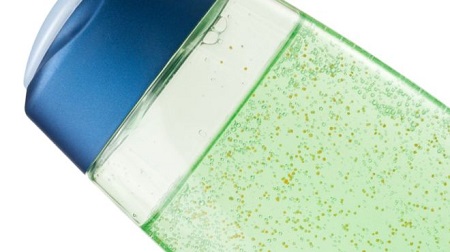MPs have recommended banning the tiny particles of plastic called “microbeads” which are used in a number of cosmetics and cleaning products. But why have they taken the move?
Microbeads is the term given to the little bits of plastic that are sometimes added to products for their abrasive properties, according to BBC.
For example, in shower gels these tiny plastic pieces – smaller than 5mm – are designed to remove dry cells from the surface of the skin.
They are also found in face washes, toothpastes and cleaning products.
Manufacturers use them because the beads can be made with uniform size and hardness.
The pieces are small enough to pass through water filtration plants and therefore end up in lakes and rivers. They can even be found in Arctic sea-ice and on the ocean floor.
A single shower can result in 100,000 plastic particles entering the ocean.
Products that contain them don’t necessarily list “microbeads” in the list of ingredients. Instead, they will often list the petrochemical plastics that go into them, such as polyethylene and polypropylene.
But those opposed to their use say they are contributing to the growing quantity of plastic debris in the ocean and are entering the food chain, where they are harming fish and other marine life.
Marine creatures easily ingest the plastic beads and the particles then get stuck in their stomachs, where they can be toxic in large quantities.
The last week, the Environmental Audit Committee called for a worldwide ban on the tiny particles as soon as possible – a move welcomed by environmentalists.
The government had previously asked firms to phase them out on a voluntary basis. That process is already complete at Unilever, and L’Oreal says it will follow by next year.
In a separate problem for the oceans, microplastics can also result from the breakup of larger plastic objects – like bags, bottles and discarded fishing gear. They can also come from eroded car tyres, road markings and synthetic fibres washed out of fleece jackets.
Microplastics originating in cosmetics entail between 0.01% and 4.1% of plastics entering the marine environment.
The committee said that microbeads are a small but significant part of this much bigger problem, and a ban would show commitment to tackling the wider issue.
H.Z

